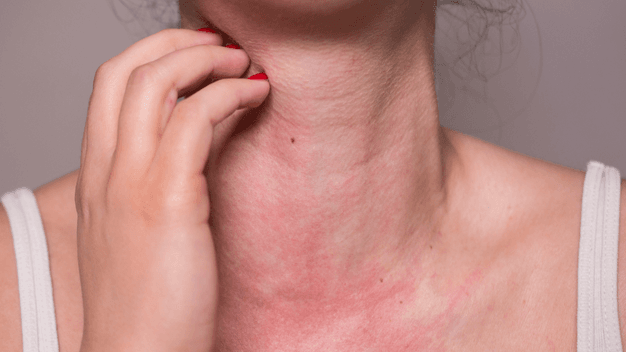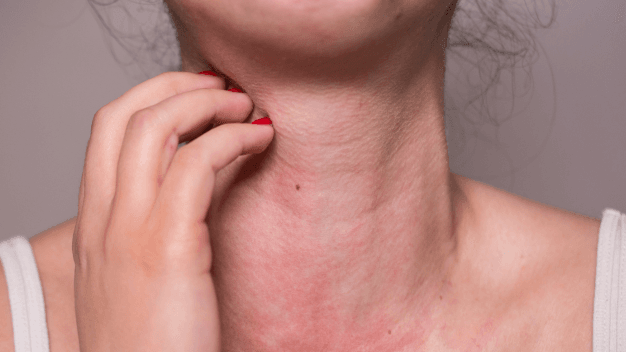On This Page
Introduction
One of the most common respiratory disorders that is becoming a significant health burden worldwide is Asthma. Currently, as per the World Health Organization, more than 300 million people are suffering from Asthma. In this article, you will find out the Natural Treatments for Asthma like Sanshodhana therapy (internal purification of the body) in which Vamana, Dhumpana, Virechana, etc, along with this Rasayana Chikitsa (rejuvenation therapy), Yoga procedures, single herbs, wholesome diet, and Lifestyle modification, etc. are also mentioned for Asthma.
What is Asthma?
The most chronic disorder related to the lower respiratory system which is characterized by dyspnea of deep velocity (difficulty in breathing mainly expiratory), prolonged expiration, wheezing sound, etc. is known as Asthma. The Asthma word means labored breathing or panting which is derived from the Greek word and is episodic airflow obstruction disease. In these diseases, the airways in respiratory diseases become constricted and inflamed, and due to trigger factors like cold air, emotional stress, exercise, etc. the airway is lined by the mucus.
Asthma – As Per Ayurveda
In Ayurveda, Asthma is mentioned as a disease of Prana Vaha Strotas (respiratory channels) in which due to vitiated Vata either alone or along with Kapha causes constriction in the smooth muscles and obstructs the passage. Along with this Ama (toxins) formation also occurs in the stomach which increases the tendency of inflammation to develop. Tamaka Shwasa is an independent disease with its etiology (Nidana), pathology (Samprapati), and management (Chikitsa). The modern management of Asthma only provides symptomatic relief and long-term use of certain drugs that are prescribed for asthma is not same on the same as Ayurveda acute exacerbation and chronic management of Asthma (Tamaka Shwasa) is done with internal purification and medication which decrease the intensity and duration of the attack and gives quality life to asthmatic patient.
Who Can Get Asthma?
There are various factors on which it depends whether you develop asthma or not. A few of them are hereditary, various types of allergies, respiration infections, environmental factors, obesity, smoking, occupational exposure, certain medications, gender, etc. If you have a family history of asthma or you are suffering from various types of allergies that are due to pollen, mold, pollution, dust mites, etc or you are exposed to certain chemicals in your workplace then chances of having asthma increase. Along with this smoking and being overweight are also the culprits behind this respiratory disorder.
How Common is Asthma?
Asthma affects people throughout the world of all backgrounds and ages. The prevalence of asthma is increasing worldwide, particularly in urban areas due to various environmental factors like air pollution, etc. below is information regarding the prevalence of asthma:-
- A study was conducted in 88 countries, and it was revealed that the prevalence of asthma increased more after the COVID- 19. (Song P, Adeloye D, Salim H, Dos Santos JP, Campbell H, Sheikh A, Rudan I. Global, regional, and national prevalence of asthma in 2019: a systematic analysis and modeling study. J Glob Health. 2022 Jun 29; 12: 04052. doi: 10. 7189/ jogh. 12. 04052. PMID: 35765786; PMCID: PMC 9239324.) Reference: https://www.ncbi.nlm.nih.gov/pmc/articles/PMC9239324/
- In the leading cause of disability, asthma is on 16th rank. There are more than 300 million cases of asthma worldwide and it was estimated that 100 more million people will be affected by asthma by 2025. (Dharmage SC, Perret JL, Custovic A. Epidemiology of Asthma in Children and Adults. Front Pediatr. 2019 Jun 18; 7: 246. doi: 10. 3389/ fped. 2019. 00246. PMID: 31275909; PMCID: PMC- 6591438.) Reference: https://www.ncbi.nlm.nih.gov/pmc/articles/PMC6591438/
- As per the asthma surveillance of the United States, more than 8% of the US population have current asthma of which 7.9% are the adult population and 8.1 % are children of age between 0-17 years. (Pate CA, Zahran HS, Qin X, Johnson C, Hummelman E, Malilay J. Asthma Surveillance – United States, 2006- 2018. MMWR Surveill Summ. 2021 Sep 17; 70 (5): 1- 32. doi: 10. 15585/ mmwr. ss7005a1. PMID: 34529643; PMCID: PMC- 8480992.) Reference: https://pubmed.ncbi.nlm.nih.gov/34529643/
Types of Asthma
The different types of asthma as per the different trigger factors are as follows:
1. Allergic Asthma: When the individual is exposed to certain allergens like dust mites, pet hairs, pollen, mold, etc., and the asthma is triggered then the asthma is known as allergic asthma.
2. Non-Allergic Asthma: When Asthma is triggered not by allergens but by some other factor like smoke, strong odors, cold air, exercise, etc. then it is known as allergic asthma.
3. Occupational Asthma: When a person is exposed to allergens and irritants in their workplace or their occupation where they are exposed to chemicals, or certain toxic fumes then such asthma is known as occupational asthma.
4. Exercise-Induced Bronchoconstriction (EIB): Some individuals have sensitive airways and when they do exercise their asthma symptoms flare up during or after exercise, such type of asthma is known as EIB asthma.
5. Childhood Asthma: Asthma in various cases starts since childhood and is often triggered by genetic factors, certain allergens, and various upper and lower respiratory infections.
6. Adult-Onset Asthma: The asthma that flares up due to certain medications, hormonal changes in the body, and environmental factors and develops in adulthood is known as adult-onset asthma.
7. Brittle Asthma: A type of asthma that is characterized by severe asthma attacks that are unpredictable and frequent despite high doses of medication is known as brittle asthma.
8. Steroid-Resistant Asthma: In a few cases the individual suffering from asthma does not respond to certain medications i.e. corticosteroids which are commonly used medicine for asthma. This type is known as steroid-resistant asthma.
9. Aspirin-Exacerbated Respiratory Disease (AERD): In certain cases of asthma, the symptoms flare up after ingestion of NSAIDs and aspirin. Such cases of asthma are known as AERD.
10. Cough-Variant Asthma: A case of asthma in which typical symptoms of asthma do not persist like shortness of breath and wheezing but a cough persists for a long time is known as cough-variant asthma.
Types of Asthma – As Per Ayurveda
In Ayurvedic classical texts, Tmaka Shwasa (asthma) is divided further into two types: 1. Pratamaka Shwasa and 2. Snatamaka Shwasa
1. Pratamaka Shwasa – The Tmaka Shwasa in which Pitta Dosha is involved and afflicted with fainting and fever is known as Pratamaka Shwasa. This type of Shwasa Roga is aggravated by indigestion, suppression of urges, dust, etc.
Do You Know?
As per ayurvedic classical texts in Tamaka Shwasa (asthma), the cooling regime is one of the major factors that flare up the symptoms but in the case of Pratamaka Shwasa due to the involvement of Pitta Dosha, Sheet Virya (cooling agents) on administration relief the symptoms.
2. Santamaka Shwasa – When the individual with Pratamaka Shwasa feels submerged in the Tama (darkness) that type of Tamaka Shwasa is known as Santamaka Shwasa.
Causes of Asthma
There are two types of causes of asthma:-
1. Induced Factor: Genetic factors, emotional stress, and obesity are considered as the major induced factors of Asthma.
2. Triggering Factor:
- Inhalation of various Allergens like pollen, mold, dust mites, etc.
- Respiratory infections like flu and common cold.
- Medications or drugs especially Aspirin, Beta-blockers, and certain NSAIDs
- Use of processed food, preservatives, excessive use of food color, and food additives.
- Environmental factors like living in places with excessive dew, cold air, sudden climate change, etc.
- Certain chemicals and fumes.
Causes of Asthma – As Per Ayurveda
Imbalance of the Tridosha along with the Ama (toxin) formation in the body results in asthma in the individual. Due to various reasons this imbalance and toxin formation occurs in the body which lead to asthma. The main cause of asthma are as follows:-
- Vishmashana (irregular food habits)
- Sheeta Ashana and Sheeta Pana (cold food and cold drinks)
- Nishpava (Dolichos lablab)
- Ama Ksheer (unboiled milk)
- Gramya Dharma (excessive sexual intercourse)
- Bhara Karshita (emaciation due to heavy weight lift)
- Ati Vyayama (excessive exercise)
- Meghaihi Abhivardhate (Cloudy weather worsens the attack)
- Sheeta Sthana, Sheeta Ambu (cold places and cold water)
- Utkelda Bhojana (intake of food that generates more waste product)
- Vistambhi Bhojana (intake of food that causes constipation), etc.
Symptoms of Asthma
The symptoms shown by the people suffering from asthma are as follows:-
- Pressure or pain in the chest causes chest tightness.
- Cough especially during nighttime.
- Dyspnea i.e. shortness of breath
- Rapid breathing
- Due to asthma symptoms waking at night/ sleeplessness.
- Discomfort or heaviness over the chest region.
- Stress
- Anxiety
- Sleep apnea.
- Sinusitis / Rhinitis
Symptoms of Asthma – As Per Ayurveda
Symptoms of asthma recorded in Ayurvedic classics are as follows:
- Peenas (stuffiness of nose / running of nose)
- Vimokshante Sukham (Slight relief in breathlessness on spitting out the sputum)
- Sayanah Shwas Peeditaha (discomfort worsens on lying)
- Kanth Gurghurak (rattling)
- Amuchyamane Tu Bhrisham (Severe breathlessness if sputum is not expected out)
- Utshoonaksa (Oedema around the eyes)
- Vishushkasya (Dryness of mouth)
- Pramoham Kasamanashcha (Frequent deterioration of consciousness during a paroxysm of cough)
- Ushnabhinandate (Likes hot things)
- Aruchi (Anorexia)
- Trishna (Excessive thirst)
- Shwasa (Dyspnea)
- Kanthodhwamsa (Soreness of the throat)
Ayurvedic Reference of Asthma
मेघाम्बुशीतप्राग्वातैः श्लेष्मलैश्च विवर्द्धते।
सयाप्यस्तमकः, साध्यो नवो वा बलिनो भवेत्॥


“The Institute of Applied Food Allergy® utilizes distinctive Ayurvedic treatment methods, derived from Dr. Gupta’s inherited knowledge and personal experience, to treat Asthma.”
– Dr. Sahil Gupta (B.A.M.S., M.H.A.)
Ayurvedic Allergy Specialist
CEO & Founder of IAFA®
Diagnosis of Asthma – As Per Ayurveda
For making diagnosis of asthma, Prakriti analysis is done which helps in identifying the predisposition of respiratory conditions along with this Vikriti analysis, symptomatic evaluation, differential diagnosis (with spasmodic breathing, breathlessness, etc will be done to make proper diagnosis.
Ayurvedic Treatment of Asthma
As per Ayurvedic classics, Asthma is caused due to the disturbed Vata and Kapha dosha. So, Ayurvedic Treatment of Asthma has two aspects:
- Management of Acute attack of asthma (Vegavastha of Tamaka Shwasa)
- Management of chronic cases of asthma (Avegavastha) where the intensity, frequency, and duration of attacks of asthma are minimized to give a quality life to the patient.
If the patient has a predominance of Kapha and is strong then internal purification is the choice of management. The Sanshodhan therapy (Panchakarma therapy) is chosen when all other measure fails.
Natural Remedies in Asthma
After proper consultation with an Ayurvedic practitioner, natural remedies can be used by the individual to get relief from asthma symptoms. Below few natural remedies are mentioned that helps to manage asthma naturally and safely:-
- Avoidance of the Causative Factors (Nidana Parivarjanam) – Avoidance of the triggering factors is the topmost treatment that one can use in the case of an asthmatic patient. Both modern and Ayurvedic doctors agree with this fact.
- During An Attack of Asthma – During an attack of Tamaka Shwasa or asthma, Sadya Vamana is given to the patient i.e. emergency emesis. After this Dhumpana or inhalation therapy is given to the patient followed by the use of various herbs and formulations.
Panchakarma Therapy (Shodhana therapy / Internal Purification) in Asthma
Shodhana therapy is the traditional detoxification treatments that balance the Tridosha and helps in treating the asthma deep from the root. Here’s how Shodhana Therapy may be adapted in asthma:-
Pre Procedures
- Snehana (Oleation therapy)
- Swedana (Sudation therapy)
Main Procedures
- Vamana (Emesis or vomiting therapy) – To eliminate vitiated Kapha the Vamana therapy is given with herbs that are not antagonistic to Vata.
- Virechana (Purgation therapy) – Herbs with properties like Ushana (hot), Teekshana (sharp), etc qualities are used to give purgation therapy to the asthmatic patient.
Post Procedures
Dhumpana (inhalation therapy) – After completion of emesis/ Vamana therapy inhalation therapy is given to the patient to eliminate hidden pathogenic substances.
Brihana Chikitsa (Energetic Treatment) in Asthma
Due to recurrent, frequent attacks of asthma, the individual debilitates due to the depletion of the bodily tissues that are known as Dhatu in Ayurveda. So in such cases, energetic treatment is done. In Brihan Chikitsa, various dietary recommendations, herbal therapy, restorative practices are mentioned that provide individual necessary nutrients, rejuvenate bodily tissues, restore overall health and are very beneficial in case of individuals who are debilitated, weak and recovering from illness.
Rasayana Chikitsa (Rejuvenation Therapy) in Asthma
In chronic cases of asthma, rejuvenation therapy along with the Shamana Chikitsa (oral medication) and Shodhana Chikitsa (purification therapy) gives excellent results. In rejuvenation therapy, various herbs and procedures are used which helps in improving lung inflammation and function. Along with this also helps to enhance the overall health of the patient.
Single Herbs Used in Asthma
Potential benefits have been studied by use of several single herbs. here are few examples:
- For bronchodilator effect – Bala (Sida cordifolia)
- For asthmatic severity – Garlic (Allium sativum)
- To reduce asthma that involves Kapha mainly – Thyme, Ephedra, Pepper, etc can be used.
- To reduce asthma that involves Pitta mainly – Vasa (Adhatoda vasica)
- For airway obstruction – Mulethi (Glycyrrhiza glabra)
At last, Easier Asthma Management

Trusted by
More than 90,000 Patients

Convenient
at-Home Treatments

9.2 / 10
Customer Satisfaction Score
Diet and Lifestyle Guidance (Pathya-Apathya)
Change in diet and lifestyle by the individual plays an important role in controlling symptoms of asthma and also helps in improving overall health. Here’s a guide:
What to Do? (Do’s) in Asthma
- Red rice
- Wheat
- Green gram
- Barley
- Goat milk can be used by Asthma patients.
- Always use warm and cooked food
- Moderate usage of bitter, astringent, and spicy taste helps in controlling Asthma.
- Spices like Garlic, Black pepper, Turmeric, Cardamom, Cumin, and Ginger can be used in daily food by an Asthmatic person.
What to Avoid? (Don’ts) in Asthma
- Cold and heavy food such as black gram, ice cream, etc.
- In general, avoiding slimy food helps in controlling Asthma.
- Avoid usage of excessive sweet, sour, and salty food substances
- Avoid the usage of fermented milk products.
- Reduce the usage of non-vegetarian food. Deeply fried or stored packed or processed non-vegetarian materials must be avoided completely.
Moderate breathing exercises can be performed by Asthma patients. Avoiding excessive exercise, and exposure to smoke and dust helps in controlling Asthma. Clothing must be capable of protecting ears, throat, and chest region while traveling.
Yoga Procedures in Asthma
As Asthma is the respiratory disorder, so Yoga procedures plays a important role in management of asthma by focusing on relaxation, controlled breathing, etc. few basic procedures that can be follow in case of asthma are as follows:-
Yoga Asanas
- Bhujangasana
- Adho Mukha Shwasana
- Trikonasana
- Sukha Asana
- Uttana Asana
Pranayama
- Nadi Shodhana Pranayama
- Ujjayi Pranayama
- Kapala Bhati
- Bhastrika Pranayama
- Anuloma Viloma Pranayama

Frequently Asked Questions
Question: Can Hay Fever Make My Asthma Worse?
Answer: Yes, Hay fever, also known as allergic rhinitis can worsen asthma as it flares up inflammation in the airways leading to symptoms like shortness of breath, tightness in the chest, etc.
Question: Is Asthma an Immune Deficiency?
Answer: Asthma is not mentioned under primary immune disease however it involves dysfunction of the immune system when it reacts to certain triggers like viruses, allergens, etc.
Question: How Do You Calm an Asthma Cough at Night?
Answer:
- Firstly, it is important to identify the trigger that worsens your symptoms and avoid that, especially during nighttime.
- Maintain your sleeping place clean.
- Stay hydrated during nighttime.
- Humidifiers and air purifiers can also be used.
- Allergy medication can also be taken.
- If nothing works, then you can seek immediate advice from your doctor.
Question: How Does Mold Affect People with Asthma?
Answer: Mold spores if inhaled by the asthmatic patient flare up inflammation and swelling in the airway of the individual and make breathing difficult. Along with this mold increases asthma sensitivity, and asthma attacks also.
Question: Do Milk Products Make Asthma Worse?
Answer: Some of the individuals are allergic to the protein present in the milk and in such cases, the use of the milk and milk products worsens the symptoms of asthma by reflexive bronchoconstriction, increased mucus production, etc. Milk products sometimes contain sulfites as preservatives that flare up asthma in a few cases.
Question: What Are Some Common Asthma Triggers?
Answer: Pollen from grasses, weeds, etc, mold spores, dust mites, tobacco smoke, pneumonia, bronchitis, cold air, humidity, latex, animal dander, beta-blockers, NSAIDs, etc are the common triggers of asthma.
References
- Tripathi Brahmanand and Pandey G.S, Charaka Samhita of Agnivesa with Charaka Chandrika Hindi Commentary, 6th Ed., Varanasi: Chaukhamba Surbharati Prakashan., (Vol- II), 1999.
- Shastri K. Ambikadatta, Sushruta Samhita of Maharsi Sushrut edited with Ayurveda Tattva Sandipika Hindi Commentary, 13th Ed., Varanasi: Chaukhamba Sanskrit Bhawan. (Vol- II), 2000.
- Vagbhatta Astanga Hridaya, Nidana Sthana, Chikitsa Sthana, edited by Y. Upadhaya, Chaukambha Prakashan, Varanasi, 2012.
- Kaviraj Govind Das Sen. Bhaisajya Ratnavali, edited by Mishra S, Chaukhamba Surbharati Prakashan, Varanasi, (Reprint ed.). 2013: 43.
- Patel, Vishal & Patel, Madhavi & Desai, Viral. (2013). Asthma Therapy in Ayurveda: An Ancient Scientific Approach. 1. 57.
- B. K. S. Iyengar, Light on Pranayama.
- Swami Dwarika Nath Shastri, Hath Yoga Pradipika, reprint 2009, Chaukambha Vidya Bhavan.
- Acharya Shri Nivasa Sharma, Gherand Samhita, first edition 2006, Choukambha Vidya Bhavan.
- Murthy. K.R., Ashtanga Samgraha of Vagbhatta, Chaukhamba orientalia Varanasi- 221001, ninth edition, 230.
- Masram, Pravin & Vedika, Ade & Patel, Ks & Kori, Virendra & Shrikrishna, Rajagopala. (2015). AN EVIDENCE-BASED REVIEW ON AYURVEDIC MANAGEMENT OF TAMAKA SHWASA (BRONCHIAL ASTHMA). International Journal of Ayurveda and Pharma Research. 3. 11- 18.
- Prasad, Ranjita & Lawania, Rahul Dev & ., Manvi & Gupta, Rajiv. (2009). Role of Herbs in the Management of Asthma. Phcog Rev.. 3. 247- 258.
- Patil, Sachinkumar & Ghumare, Radhika. (2023). Ayurvedic management of Tamakshwasa with special reference to bronchial asthma: A case study. World Journal of Advanced Research and Reviews. 18. 1164- 1168. 10. 30574/ wjarr. 2023. 18. 1. 0730.
Seek Expert Advice
Years of experience and knowledge of IAFA® led by Dr. Gupta have given successful results to thousands of Asthmatic cases. The unique as well as accurate diagnostic measures including Nadi Pareeksha (Pulse Diagnosis) and the easy-to-follow treatment method used in IAFA® are unique in the magical healing process. Ayurveda is the only completely natural measure through which Asthma can be treated successfully. Enjoy the benefits of Ayurveda by visiting the Institute of Applied Food Allergy which is completely based on pure Ayurveda.
Visit IAFA® and successfully treat your Asthma!!! Live life to the fullest with healthy lungs – IAFA®.
Was this Page Helpful?
So IAFA® Root-Cause Treatment of Your Asthma is Just 3 Steps Away!

01. Connect With Us
Share your history of illness or Book your appointment

02. Consult With Us
Dr. Gupta a certified Ayurvedic Allergist Consultant

03. Root Cause Treatment
Get an accurate diagnosis, medicines, diet & lifestyle change
Real Case Studies – Successfully Treated Patients
Real Case Studies of Successfully Treated Patients from All Around the World by IAFA Ayurveda®

5-Year-Old Shih Apso Dog Recovered from Canine Peripheral Neuropathy – A Case Study
This case study presents a 5-year-old Shih Tzu-Lhasa Apso crossbreed dog (pet)…

9 Year Old Female Patient Recovered from Chronic Allergic Bronchitis – A Case Study
This case study presents a 9-year-old female patient who has successfully recovered…

12-Year-Old Child Recovered from Sun Allergy and Polymorphous Light Eruption (PMLE) – A Case Study
This is a case study of a 12-year-old child who has successfully…

40-Year-Old Female Patient Recovered from Dyshidrotic Eczema and Onychomycosis – A Case Study
This case study highlights the successful recovery of a 40-year-old female patient…
Read More Articles

Polymorphous Light Eruption (PMLE)
Discover Ayurvedic treatment for Polymorphous Light Eruption (PMLE). Learn about its causes,…

Mast Cell Diseases
Discover Ayurvedic treatment for Mast Cell Diseases, including types, causes, symptoms, and…

High Immunoglobulin-E (IgE) Levels
Discover Ayurvedic treatment for high Immunoglobulin-E (IgE) levels. Learn about the causes,…












